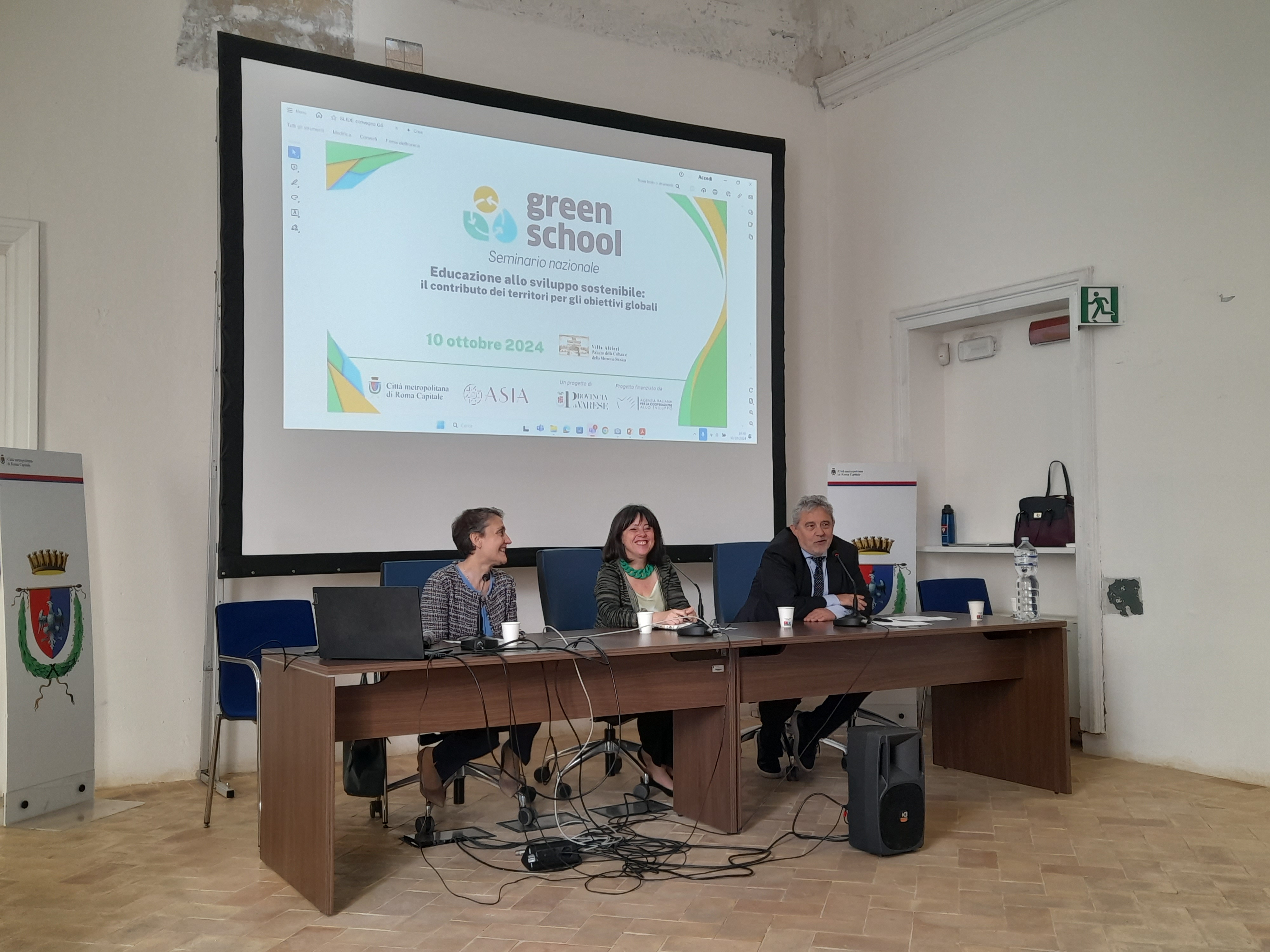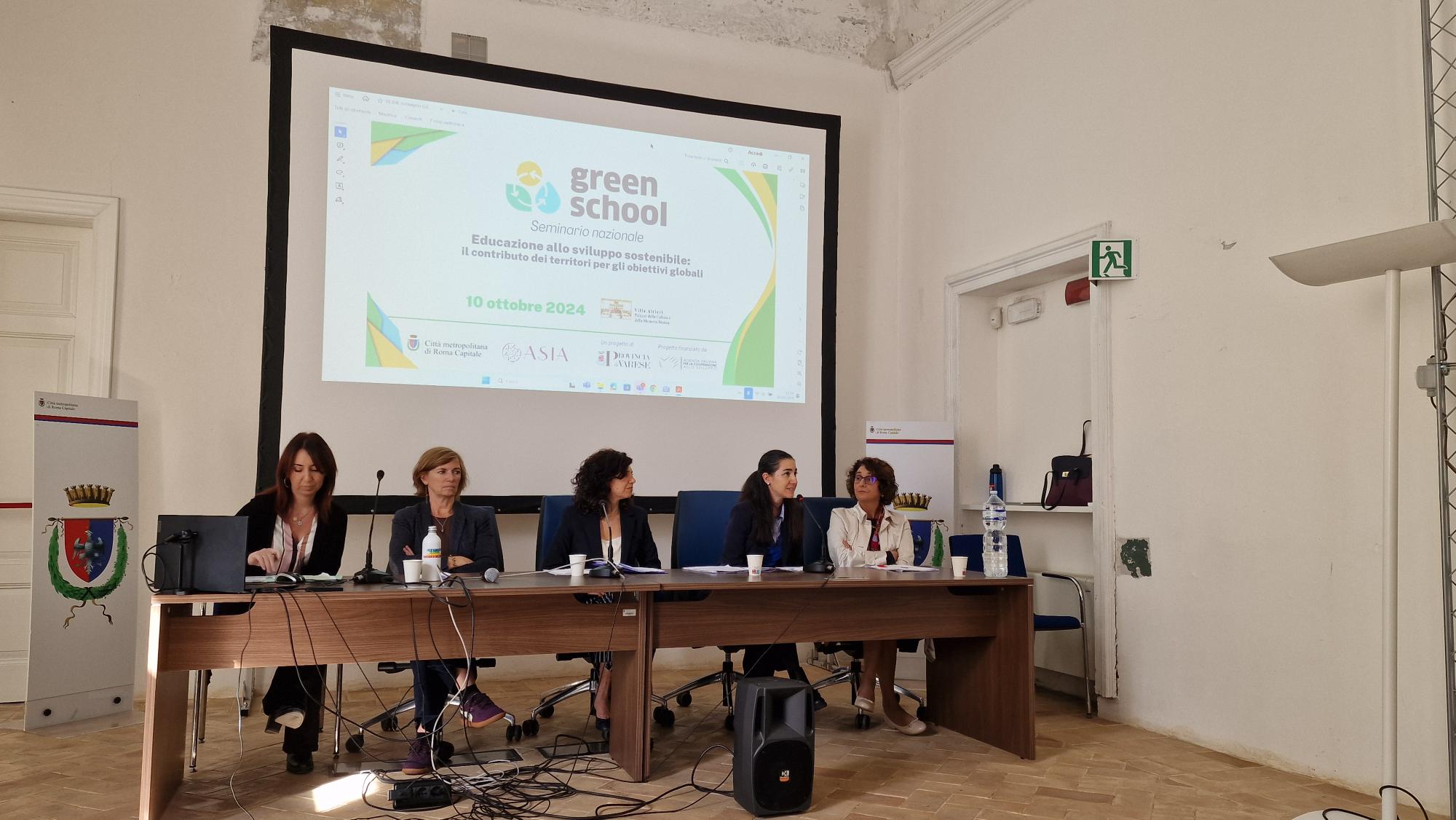On October 10, 2024, the Italian Agency for Development Cooperation (AICS) participated in the National Seminar “Education for Sustainable Development: The Contribution of Local Areas to Global Goals,” organized as part of the Global Citizenship Education Initiative Green School Italia, funded by AICS and implemented by the Province of Varese.
The Green School Italia project is a successful example of a program that began in 2009 through the initiative of Agenda 21 Laghi, in collaboration with the NGO CAST and the University of Insubria. Over the years, it has expanded not only in terms of its participants but also in the regions it serves.
AICS has supported the growth of this initiative by financing two key projects: the first, through the 2019 Global Citizenship Education (GCE) Call for Proposals, extended the Green School network throughout the Lombardy Region; and the second, through the 2021 GCE Call, brought the Green School model to four additional Italian regions (Lazio, Tuscany, Valle d’Aosta, and Sardinia, along with Lombardy).
Aligned with Italy’s Strategy for Global Citizenship Education and its National Action Plan, the project promotes knowledge of sustainability, focusing on environmental protection, combating climate change, and mitigating human impact. It equips participants with tools to understand, become aware of their role, and take action for a more equitable, inclusive, and sustainable world.
The Green School model, through active learning — “learning by doing” — has engaged not only students from many schools but also educational communities, local territories, and institutions, embodying the essence of the Global Citizenship Education approach.
During the seminar, Dr. Grazia Sgarra, AICS official, emphasized a key point on which AICS has been working for some time: promoting the role of local authorities in Sustainable Development and Global Citizenship. “We believe that local authorities have an essential institutional role as ‘system’ actors. They are not only promoters and implementers of policies but also coordinators and enhancers of the local actors active in their territories.”
The event also delved into the importance of institutional coordination on sustainability, with participation from the Ministry of Environment and Energy Security (MASE) and the Ministry of Education and Merit (MIM). Furthermore, to strengthen the international dialogue on these topics, AICS involved UNESCO, which is advancing a similar program to the Green School through its Greening Education Partnership. The seminar was also an opportunity to reflect on the importance of synergies between actors, territories, and networks promoting education for sustainable development, aiming for coherent and effective interventions.

